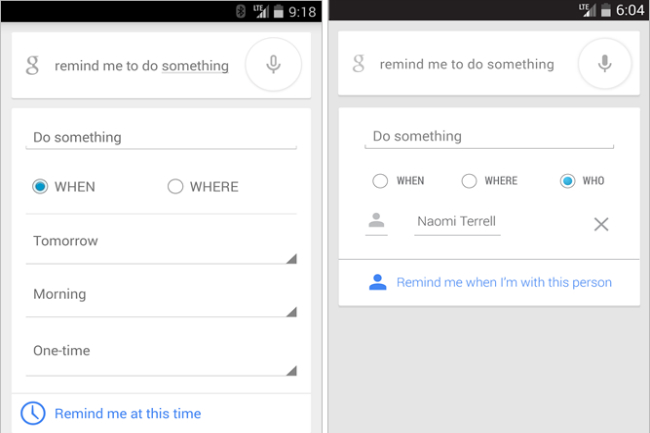
In its current iteration, Google Now, which we thought one-upped Siri in more ways than one, reminds you when you need to accomplish a certain task or where you need to go for a meeting, for example. However, what if you used Google Now to remind you when you’re close to someone? According to a rumor by Android Police, that could be where Google Now is headed next.
According to the site’s source, the feature will be implemented sometime in the future. The mockup seen above is only to show what the feature could look like. Theoretically, it would work using Google+’s Location Sharing feature, which allows you to share where you are with others. Since the “who” feature would let you know when you’re near someone, both of you would likely need to enable that feature.
In addition, with the “who” feature, Google could likely show you a list of contacts who also opted to share their location. That way, the process of picking who the person in question is would be easier. If it all worked out, you could ask Google to remind you to “slap Jeffrey Van Camp” next time you’re near him. When your phone detects that he is in your proximity, it would alert you to slap Jeff now. We don’t encourage slapping editor’s of Digital Trends, though, so please vary your targets.
Unfortunately, location sharing is not something Google promotes very well, so a feature like this will likely walk through the steps necessary to take advantage of it. In addition, a feature like this is sure to rile up privacy advocates, though the option to opt-in is sure to quell their worries.
It is unknown whether Google Now’s “who” feature will be implemented as an update for the app itself or as a headline feature for the next version of Android, but we will keep a close eye in the coming months.
(Image via Android Police)